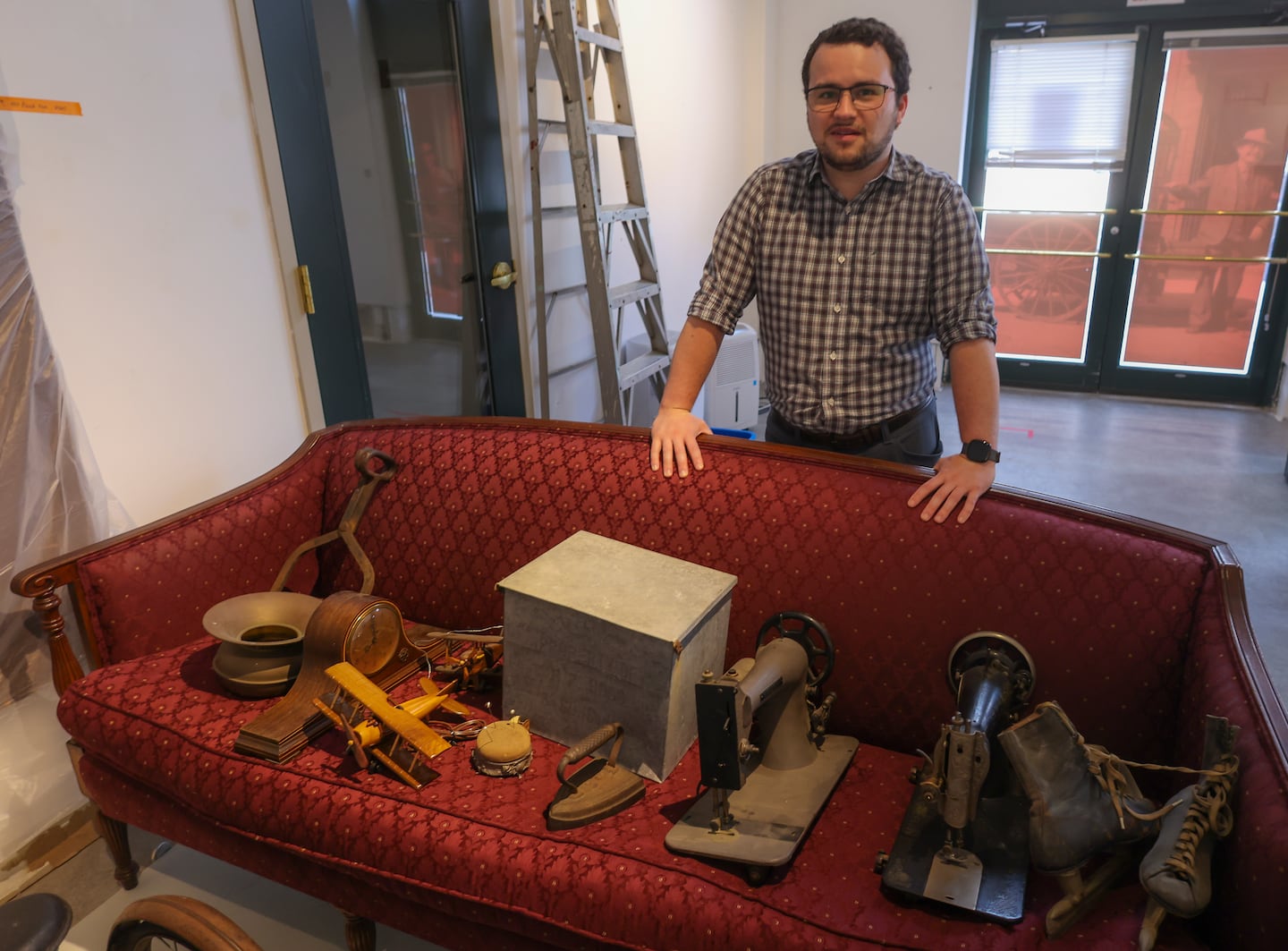Two weeks ago, Sebastian Belfanti was ecstatic. The West End Museum, where Belfanti is executive director, had been selected to receive a federal grant from the National Endowment for the Humanities in 2025. The $25,000 sum “is like 5 percent of our annual budget, which is a big deal on a single grant,” Belfanti said. The money was earmarked to create public programming and an exhibit related to the West End neighborhood’s LGBTQ history at the museum, which suffered water damage in 2022 when a pipe burst and finally reopened last May.
Then, on Tuesday, the Trump administration announced its plan to pause all federal funding in order to analyze whether it aligns with the president’s political priorities, potentially threatening the future of the West End project and numerous other cultural endeavors in the state. Later the same day, United States District Judge Loren AliKhan temporarily blocked President Donald Trump’s freeze from going into effect until at least Monday. Now some Bay State cultural organizations are in limbo, unsure whether the funding they were banking on will survive the ideological scrutiny of the new administration.

In his first nine days in office, Trump has signed a flurry of executive orders aimed at reversing progressive policies on immigration; the environment; transgender rights; and diversity, equity, and inclusion, or DEI — areas that are commonly addressed through arts programming in Massachusetts.
“I’m not shocked that something like this is coming,” Belfanti said, regarding the funding freeze. “Do I think that our project is probably going to get killed? Yeah, of course.”
The proposed pause includes federal agencies like the National Endowment for the Arts (NEA), the National Endowment for the Humanities (NEH), and the Institute of Museum and Library Services (IMLS) — three prominent funders of local arts and culture nonprofits.
According to data from the most recently available fiscal years, NEA promised $1.3 million to 54 Massachusetts-based grantees in 2025, NEF awarded $2.2 million to 14 grantees in Massachusetts for 2025, and IMLS doled out $8.2 million to 27 Bay State grantees in 2024. Much of that funding, approved under the Biden administration, is meant to go toward arts and culture programs, performances, and education that highlight diverse stories.
The new administration’s stance is in contrast to the Biden White House, which encouraged funding art that shared “the stories of those in underrepresented communities,” said Emily Ruddock, executive director of MASSCreative, a statewide arts advocacy organization.
It’s not just nonprofit arts organizations that are in a holding pattern. State agencies, like the Mass Cultural Council, that receive and often redistribute federal funding, are also awaiting more information.
“Like all who receive federal funding, Mass Cultural Council is troubled by today’s announcement and is actively seeking to learn and understand what steps may follow this decision,” Michael J. Bobbitt, the agency’s executive director, said in a statement on Tuesday. “While details are still emerging, we caution a long-term freeze in federal grant-making will significantly and negatively impact many in the Commonwealth’s cultural sector.”

Grace Kennerly, executive director of the Jamaica Plain chamber orchestra A Far Cry, said in a statement that she anticipates “there would almost certainly be a sort of trickle down effect” from local funders like MCC losing access to federal dollars. For a small arts organization like A Far Cry — which is supposed to receive $25,000 from the NEA this year for “concerts and community engagement activities that explore the diversity of American communities, changes to the nation’s natural ecology, and immigration” — the potential loss is “a huge shock to the system,” Kennerly said.
Historically, a large portion of nonprofit arts funding in the United States comes from private donors, corporate philanthropy, and contributions from foundations, according to a 2012 NEA report. Given the uncertainty of the philanthropic landscape, “cultural nonprofits have been encouraged to have a healthy mix of funding sources” including earned revenue and government funding, Ruddock said. “Federal grants allow arts organizations to take risks or to expand their work and serve communities that they wouldn’t necessarily be able to without the federal funding support.”
Handel and Hadyn Society, the Boston-based chorus and period instrument orchestra, was recently announced as a 2025 NEA grantee to the tune of $40,000 to help finance performances of “Crossing the Deep,” a choral drama based on the history of the Atlantic slave trade during the time of one of the orchestra’s namesakes, 18th-century composer George Frideric Handel.

“Any disruption to funding for the arts is concerning and destabilizing,” said H+H CEO David Snead in a statement. “The potential loss of $40,000 from NEA to produce ‘Crossing the Deep’ limits our ability to provide Boston audiences with programming that connects us all with our shared humanity. When public funding is uncertain, we are forced to fill that gap with private contributions. We are monitoring the situation and hope this funding pause is just that.”
Bobbitt of Mass Cultural Council is optimistic arts funding will be sustained. “We are hopeful the Trump Administration’s review of federal spending will be expeditious and any and all previously committed funds are delivered without long delay,” he said.
But Trump’s track record on arts funding hints toward a different outcome. In every year of the president’s first term, he proposed a federal budget that eliminated funding for the NEA, though every year Congress restored it.
“The zeroing out of the NEA felt largely symbolic from the Trump administration. However, that was under a different Congress,” said Ruddock. “It’s very hard to be able to estimate what the next moves will be.”
Julian E.J. Sorapuru is an Arts Reporter at the Globe and can be reached at [email protected]. Follow him on X @JulianSorapuru.
